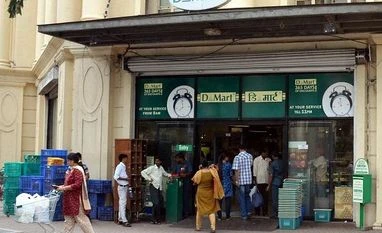Aditya Birla Fashion and Retail reported Rs 1.4 billion operating profits for the quarter ended December 2017 — a 56.8 per cent year-on-year jump. This was the highest rise in profits among retail majors in the quarter, during which peers of the Kumar Mangalam Birla-promoted company also reported high gains.
Most-valued retailer Avenue Supermart’s (D-Mart) profit before interest, depreciation and taxes (PBIDT) rose 46.5 per cent to touch Rs 4.2 billion; the Tata group-promoted Trent reported a 41.7 per cent jump in profits to Rs 0.6 billion; and Kishore Biyani-promoted Future Retail reported a 37.9 per cent increase in profits to Rs 2.1 billion.
“This was driven by the higher-than-expected margin expansion, higher share of general merchandise sales, and cost controls,” said Aditya Soman, analyst, Goldman Sachs, in his report on Avenue Superamarts, which had net sales of Rs 40.9 billion in the quarter, a 22.6 per cent annual jump. This is higher than 14.5 per cent same-store sales growth estimated for 2017-18 by brokerage Indian Infoline. Trent reported 20.2 per cent annual growth in net sales to Rs 5.2 billion, on the back of a better product mix. Its flagship store, Westside, reported an 18 per cent jump in revenue, but same-store sales grew only 7 per cent.
“Trent’s supply chain efficiencies were on display with the GST (goods and services tax) transition having no impact — inventory days fell by 3 weeks to 121 despite newer stores,” said Ambit Capital in its report. A better product mix also helped Aditya Birla Fashion and Future Retail. “The company (Aditya Birla Fashion) has embarked on cost rationalisation,” said Abneesh Roy, analyst, Edelweiss, in his report.
Source Capitaline; Compiled by BS Research Bureau
More From This Section
In Future Retail, more profits were a result of the demerger of HomeTown and the scaling down of eZone. “It delivered a muted revenue performance,” said Himanshu Nayyar, analyst with Systematix Research.
Growth was 21 per cent, excluding the impact of GST-related accounting changes, HomeTown demerger, and ongoing rationalisation of the eZone business. It was largely pushed by convenience stores, such as EasyDay and Heritage Fresh. Shoppers Stop is the only laggard among the standalone retail majors. The K Raheja Corp-promoted retailer reported an 8.3 per cent annual decline in PBIDT to Rs 0.6 billion on the back of a 4.7 per cent decline in revenue to Rs 9.6 billion. The company’s product mix deteriorated in the quarter. “The proportion of private labels slipped 260 basis points year on year to 8.9 per cent. The company is targeting private labels’ contribution to improve to 12 per cent by Q4FY18 to 15 per cent in FY19,” said Roy.
It has, however, benefitted from its tie-up with Amazon in 2017-18. “We believe Shoppers Stop is in a sweet spot: The tie-up with Amazon will boost omnichannel. Interest cost dipped, as funds from the Amazon deal and HyperCity sale were utilised to pare debt,” said Roy.
)